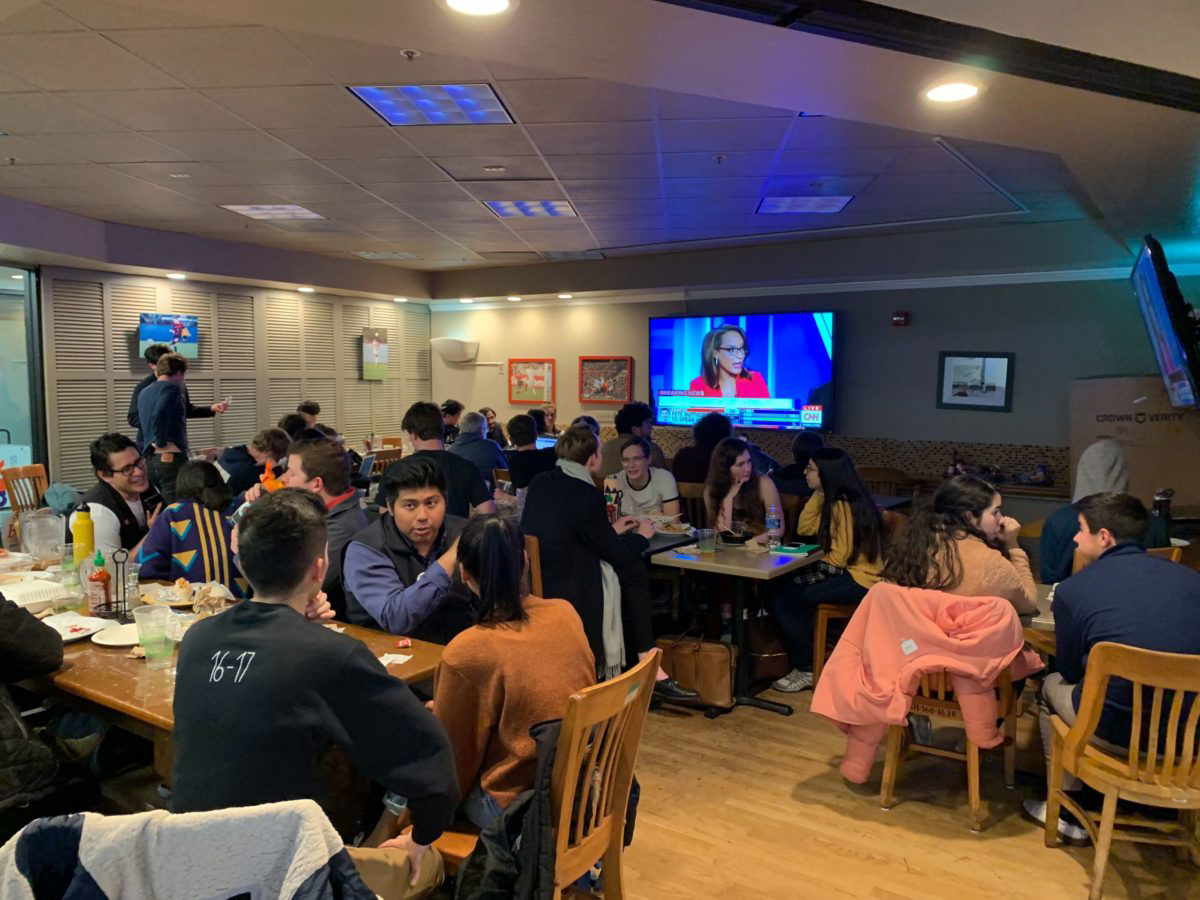Following the end of Sen. Cory Booker’s (D-N.J.), entrepreneur Andrew Yang’s and, most recently, Sen. Elizabeth Warren’s (D-Mass.) Democratic primary campaigns, student clubs in support of those candidates highlighted friendships the clubs brought them, as well as their commitments to future political change.
Warren, the most recent candidate to exit the race, announced the end of her campaign Thursday morning.
Cardinal for Warren chapter lead Chloe Stoddard ’21 said the group was planning a celebration.
“Our current plan is to have our last meeting on Sunday,” Stoddard said. “We’re just going to go to The Treehouse and have a night to celebrate what we did accomplish and what, most of all, the campaign has accomplished.”
Stoddard focused on the relationships activists formed during the campaign.
“We joked about how, you know, if she [Warren] stopped running, we would continue as a social group,” Stoddard said. “It’s a joke, but it goes to show how much we care about each other and how much our love for Elizabeth Warren has brought us together.”
Stoddard added that she enjoyed the campus reception of Cardinal for Warren while the group campaigned.
“I’m still surprised,” Stoddard said. “People would be like, ‘Oh, hey, I get your emails all the time. Thank you for your public service.’ People never, even if they disagreed with Elizabeth Warren or something, they didn’t really target the group. So, thank you, Stanford.”
Representatives for the Yang and Booker campaigns on campus echoed similar sentiments.
According to Kyra Whitelaw ’21, organizer of the campaign for Booker on campus, the group “mostly disbanded” after Booker dropped out in January.
“Most of us are individually still very politically active but we did not continue working as a group,” Whitelaw said. “We are still in touch in the sense that we are all friends and see each other around campus often.”
She said she also looked forward to maintaining the friendships she had made.
“We shared a lot of the same values and interests,” Whitelaw said. “I’m excited to continue those friendships beyond this election cycle.”
Michael Fischer ’20, who led Stanford’s Yang Gang, said that after Yang dropped out in February, the group stayed in touch and plans to organize more events in the future.
“The friendships we made will definitely be one of the most lasting parts of the campaign,” Fischer said. “Ultimately that was why the group worked from the start because we liked hanging out with each other. During the campaign we were focused on doing everything to get Andrew Yang elected and further the idea of universal basic income. We’re still planning events around universal basic income on campus.”
Like Stoddard, Fischer spoke favorably about what he saw as a positive attitude toward the Yang Gang’s campaign efforts, as well as a “collaborative experience” working around other political groups on campus.
Fischer said the campaign also helped prepare him to teach about the intersection of technology and law for LAW 4045: “Digital Technology and Law: Foundations.”
“Being on the campaign and thinking about law and technology definitely help to prepare me to be a better teaching assistant,” Fischer said. “Where technology meets law was one of the ethos of Andrew Yang’s campaign.”
Contact Anastasia Malenko at malenk0 ‘at’ stanford.edu.
